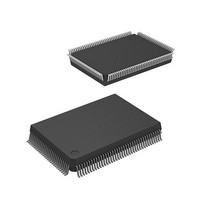DF2367VF33 Renesas Electronics America, DF2367VF33 Datasheet - Page 762

DF2367VF33
Manufacturer Part Number
DF2367VF33
Description
MCU 3V 384K 128-QFP
Manufacturer
Renesas Electronics America
Series
H8® H8S/2300r
Datasheet
1.DF2368VTE34V.pdf
(1044 pages)
Specifications of DF2367VF33
Core Processor
H8S/2000
Core Size
16-Bit
Speed
33MHz
Connectivity
I²C, IrDA, SCI, SmartCard
Peripherals
DMA, POR, PWM, WDT
Number Of I /o
84
Program Memory Size
384KB (384K x 8)
Program Memory Type
FLASH
Ram Size
24K x 8
Voltage - Supply (vcc/vdd)
3 V ~ 3.6 V
Data Converters
A/D 10x10b, D/A 2x8b
Oscillator Type
Internal
Operating Temperature
-20°C ~ 75°C
Package / Case
128-QFP
Lead Free Status / RoHS Status
Contains lead / RoHS non-compliant
Eeprom Size
-
Other names
HD64F2367VF33
HD64F2367VF33
HD64F2367VF33
Available stocks
Company
Part Number
Manufacturer
Quantity
Price
Company:
Part Number:
DF2367VF33V
Manufacturer:
Renesas Electronics America
Quantity:
135
Company:
Part Number:
DF2367VF33V
Manufacturer:
Renesas Electronics America
Quantity:
10 000
Company:
Part Number:
DF2367VF33WV
Manufacturer:
Renesas Electronics America
Quantity:
10 000
- Current page: 762 of 1044
- Download datasheet (6Mb)
Section 19 Flash Memory (0.35-μm F-ZTAT Version)
19.6
In an on-board programming mode, programming, erasing, and verification for the on-chip flash
memory can be performed. There are two on-board programming modes: boot mode and user
program mode. Table 19.4 shows how to select boot mode. User program mode can be selected by
setting the control bits by software. For a diagram that shows mode transitions of flash memory,
see figure 19.2.
Table 19.4 Setting On-Board Programming Mode
Boot mode
19.6.1
When this LSI enters boot mode, the embedded boot program is started. The boot program
transfers the programming control program from the externally connected host to the on-chip
RAM via the SCI_1. When the flash memory is all erased, the programming control program is
executed.
Table 19.5 shows the boot mode operations between reset end and branching to the programming
control program.
1. When the boot program is initiated, the SCI_1 should be set to asynchronous mode, the chip
2. After matching the bit rates, the chip transmits one H'00 byte to the host to indicate the end of
Rev.6.00 Mar. 18, 2009 Page 702 of 980
REJ09B0050-0600
measures the low-level period of asynchronous SCI communication data (H'00) transmitted
continuously from the host. The chip then calculates the bit rate of transmission from the host,
and adjusts the SCI_1 bit rate to match that of the host. The transfer format is 8-bit data, 1
stop bit, and no parity. The reset should end with the RxD pin high. The RxD and TxD pins
should be pulled up on the board if necessary. After the reset ends, it takes approximately 100
states before the chip is ready to measure the low-level period.
bit rate adjustment. The host should confirm that this adjustment end indication (H'00) has
been received normally, and transmit one H'55 byte to the chip. If reception could not be
performed normally, initiate boot mode again by a reset. Depending on the host’s transfer bit
rate and system clock frequency of this LSI, there will be a discrepancy between the bit rates
of the host and the chip. To operate the SCI properly, set the host’s transfer bit rate and system
clock frequency of this LSI within the ranges listed in table 19.6.
On-Board Programming Modes
Boot Mode
Single-chip activation expanded mode
with on-chip ROM enabled
Mode Setting
MD2
0
MD1
1
MD0
1
Related parts for DF2367VF33
Image
Part Number
Description
Manufacturer
Datasheet
Request
R

Part Number:
Description:
CONN PLUG 12POS DUAL 0.5MM SMD
Manufacturer:
Hirose Electric Co Ltd
Datasheet:

Part Number:
Description:
CONN PLUG 18POS DUAL 0.5MM SMD
Manufacturer:
Hirose Electric Co Ltd
Datasheet:

Part Number:
Description:
CONN PLUG 14POS DUAL 0.5MM SMD
Manufacturer:
Hirose Electric Co Ltd
Datasheet:

Part Number:
Description:
CONN RECEPT 20POS DUAL 0.5MM SMD
Manufacturer:
Hirose Electric Co Ltd
Datasheet:

Part Number:
Description:
CONN PLUG 16POS DUAL 0.5MM SMD
Manufacturer:
Hirose Electric Co Ltd
Datasheet:

Part Number:
Description:
CONN RECEPT 16POS DUAL 0.5MM SMD
Manufacturer:
Hirose Electric Co Ltd
Datasheet:

Part Number:
Description:
CONN PLUG 20POS DUAL 0.5MM SMD
Manufacturer:
Hirose Electric Co Ltd
Datasheet:

Part Number:
Description:
CONN PLUG 30POS DUAL 0.5MM SMD
Manufacturer:
Hirose Electric Co Ltd
Datasheet:

Part Number:
Description:
CONN RECEPT 30POS DUAL 0.5MM SMD
Manufacturer:
Hirose Electric Co Ltd
Datasheet:

Part Number:
Description:
CONN PLUG 40POS DUAL 0.5MM SMD
Manufacturer:
Hirose Electric Co Ltd
Datasheet:

Part Number:
Description:
KIT STARTER FOR M16C/29
Manufacturer:
Renesas Electronics America
Datasheet:

Part Number:
Description:
KIT STARTER FOR R8C/2D
Manufacturer:
Renesas Electronics America
Datasheet:

Part Number:
Description:
R0K33062P STARTER KIT
Manufacturer:
Renesas Electronics America
Datasheet:

Part Number:
Description:
KIT STARTER FOR R8C/23 E8A
Manufacturer:
Renesas Electronics America
Datasheet:

Part Number:
Description:
KIT STARTER FOR R8C/25
Manufacturer:
Renesas Electronics America
Datasheet:











